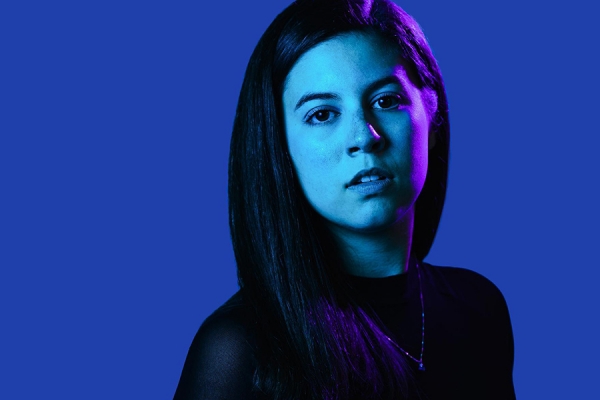 Grade 7 and 8 students bead bracelets using binary code during A Scientist Like Her, June 3 at the University of Windsor.
Grade 7 and 8 students bead bracelets using binary code during A Scientist Like Her, June 3 at the University of Windsor.
Young female scientists spent the day with the Faculty of Science for the annual A Scientist Like Her event on June 3.
The summer event gave 42 girls in Grades 7 and 8 an opportunity to engage in science, technology, engineering, and math (STEM) activities and interact with undergraduates in various fields. This year focused on biology, computer science, and environmental science subjects.
The event is hosted by the Women in Science (WinS) initiative under the faculty’s Usci Network along with experiential learning specialist Michelle Bondy. WinS co-lead Rabia Ali is a biological science undergraduate who plans to graduate in Fall 2023.
“I think it’s a great way for girls at this age to learn about the sciences so they can see if anything piques their interest,” says Ali. “That way, they know if they want to pursue the subject in high school.”
To highlight computer science, the students used a binary code to bead bracelets, used cryptography wheels to send coded messages to friends, and explored how coding is used for a self-driving car to operate.
Hadia Malik is also a WinS co-lead. She heads into her fourth year of medical physics this fall.
She says the event allows girls to explore science concepts that they may not have the opportunity to learn about in their elementary schools.
“Additionally, it provides a lot of hands-on engagement with the various activities that allows them to see science in action,” says Malik.
“I especially think it is a great way for girls to be exposed to the variety of different things they can learn if they pursue science further, and we strive to encourage them to take science classes once they get to high school.”
Environmental science activities involved applying practical skills in an environment focused situation. Using a compass to complete a campus scavenger hunt, participants followed specific compass bearings and used clues to bring them to different outdoor landmarks.
Incoming WinS co-lead neuroscience major Gabriella Agostino says the event was a huge success.
“Our 42 attendees enjoyed a jam-packed day of learning, friendship, collaboration, and most importantly, fun!” says Agostino.
“The event could not have gone as well as it did if it weren't for the help of our faculty members and volunteers — our faculty members helped to make sure that every activity was perfectly planned, and our volunteers ensured that all went smoothly the day of the event.”
Finally, the biology activities were led by professors Kenneth Ng and Isabelle Barrett-Ng, from separating DNA fragments using a gel electrophoresis machine, to creating yogurt smear samples to look at under a microscope, to filtering squished strawberries to extract DNA.
Ali says the eager students seemed to enjoy all the day’s activities and it was great seeing them have fun while learning.
“The girls who were interested in science asked the teachers and undergraduates a lot of questions, so I believe they all learned at least one new thing,” says Ali.
A Scientist Like Her is sponsored by Better Blinds and Drapery. WinS volunteers are: Tayeba Azeem, Salma Ahmida, Lauren Pandolfi, Adina Dasa, Sarah Duque, Vanessa Riolo, Selena Grado, Rachel Chevalier, Nour Elhoda Elharake, and Mariam-Nadeem Akram.




